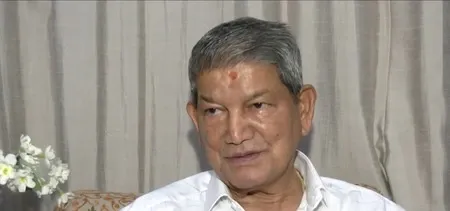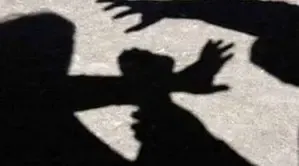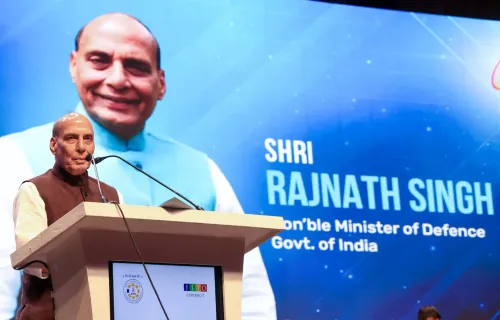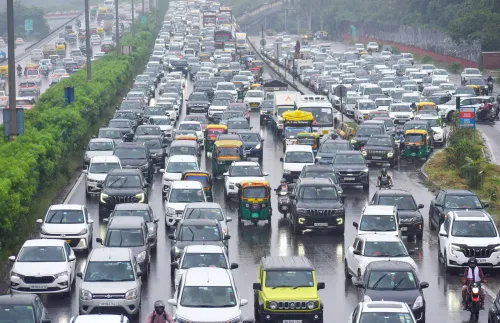Is the Minority Educational Institutions Bill a Distraction from Core Issues? Uttarakhand Ex-CM Rawat Weighs In

Synopsis
Key Takeaways
- Harish Rawat criticizes the new Uttarakhand Minority Educational Institutions Bill.
- The bill is seen as a diversion from pressing issues like unemployment and inflation.
- The bill aims to unify all minority educational institutions.
- Critics fear it could negatively impact existing educational frameworks.
- The government defends the bill as a landmark reform in minority education.
New Delhi, Aug 18 (NationPress) Former Uttarakhand Chief Minister and prominent Congress figure Harish Rawat criticized the state government's recent decision to abolish the long-standing Madarsa Education Board Act in favor of the Uttarakhand Minority Educational Institutions Bill, 2025. He contended that this shift is intended to distract the public from critical issues like unemployment, inflation, and migration.
In his response to the decision made by Chief Minister Pushkar Singh Dhami's Cabinet, Rawat stated that the new Act serves merely as a political maneuver to fabricate a new agenda for the ruling BJP.
Speaking to IANS, Harish Rawat expressed, “A government that has nothing substantial to say about pressing issues resorts to such actions. They have failed to tackle corruption, unemployment is on the rise, atrocities on women are escalating, and inflation is placing a heavy burden on the public. Migration from the hill regions remains rampant. In this context, this new law only serves as a diversion to mislead citizens from the fundamental problems.”
He argued that the Bill would negatively impact the state's educational framework rather than enhance it.
“This will undoubtedly have adverse effects on education in Uttarakhand. The BJP will present this decision as a success, but it will not alleviate any struggles for ordinary citizens. It is designed solely for the benefit of the Dhami government,” he added.
Rawat further asserted that the Bill does not genuinely benefit any minority community.
“This is not a genuine decision but merely a diversionary tactic. There are numerous unresolved issues facing the government. This Bill will not aid Muslims, Sikhs, Jains, Christians, or any other community. Its sole result will be to bolster the political position of the ruling BJP while compromising the educational framework of the state,” he said.
Congress leader Hussain Dalwai also questioned the government’s motives behind this initiative.
“Who sends children to madrasas? It is the impoverished who do so. If the government aims to enhance educational standards and deliver modern education, that is commendable. However, it must be applied equitably, as there are educational institutions from other religions as well,” Dalwai told IANS.
The Uttarakhand government, on the other hand, defended its action, describing it as a “landmark reform” in minority education. The Dhami Cabinet approved the proposal on Sunday to repeal the Uttarakhand Madarsa Education Board Act of 2016 and introduce the Uttarakhand Minority Educational Institutions Act.
The new legislation, expected to be presented during the state Assembly session commencing Tuesday in Gairsain, aims to unify all minority educational institutions. Unlike the previous system that only benefited Muslim institutions, the new Bill will extend recognition and support to educational entities operated by Sikhs, Christians, Jains, Buddhists, and Parsis as well.
According to the Bill's provisions, a regulatory authority will be established to supervise minority educational institutions throughout the state. This will replace the existing Madarsa Education Board, which currently oversees 452 registered madrasas in Uttarakhand. Following the Cabinet's decision, the Madarsa Board will cease operations by July 1, 2026.
This decision follows the CM Dhami government's crackdown on several “illegal madrasas” in the state. Officials argue that the new law aims to create a transparent framework for recognizing and monitoring institutions run by all minority groups, thereby reducing irregularities.
The Cabinet resolution also calls for the repeal of the Uttarakhand Non-Government Arabic and Persian Madarsa Recognition Rules, 2019. Both the 2016 and 2019 regulations will be rendered null and void effective July 1, 2016. This implies that no distinct educational Board or recognition rules will exist for madrasas in the state once the new Act takes effect.
While the government champions the move as an inclusive measure, the Opposition remains skeptical.








